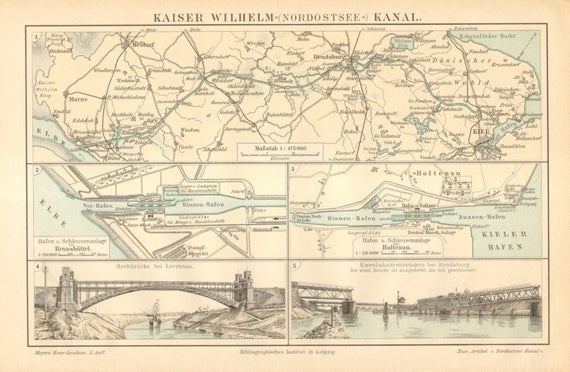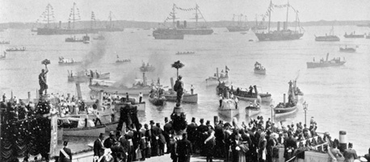The indispensable part of The Mark Steyn Club is its members - and I'm very appreciative of all those who signed up on that first weekend just over two years ago and who've eagerly signed up for a third season. It means an awful lot to know you value what we do here - the passing parade, civilizational collapse, audio fiction, video poetry, live music. I promise we shall be here for many years yet. If you'd like to join us for the next twelve months, please see here - and don't forget our special Gift Membership.
One benefit of Club membership is access to our more than two dozen audio adventures in Tales for Our Time, all now easily accessible in a new Netflix-style tile format. Thank you for all your comments about our latest radio serial, Erskine Childers' 1903 classic of espionage and intrigue with Englishmen and Germans on the hunt through the Frisian Islands - The Riddle of the Sands. From the great seafaring land of Alberta, Dr Charles Oyer spots an obvious landlubber:
My commendation for your superb presentation of a book previously unknown to me.The pronounciation of 'gunwale' has been altered since a previous episode. However, 'forecastle' is commonly pronounced 'FOK' sul.. I am somewhat embarrassed for submitting this from landlocked Calgary.
Actually, Erskine Childers spells it phonetically for most of the book - "fo'c'sle" - and I so pronounce it. But in a couple of the early chapters, as in the one you cite, he spells it out "forecastle". So I gave it the full three syllables, because I'm assuming Childers intended it - to show that Carruthers was not yet an old hand at this.
On the other hand, this next one was a genuine error. One of my fellow Granite Staters, Victor Maslov, writes from a mere stone's throw from the mighty New Hampshire seacoast
A minor quibble on Part Seven. The description of the difficulties of sailing in shoal water in poor visibility contains the phrase 'depend on lead and compass.' In this case the word lead refers to the sounding lead for measuring depth and is pronounced 'led' not 'leed'. I almost missed it, but having done this sort of thing a time or two in the past, I was paying exceptionally close attention. This is the most minor of quibbles. I am enjoying your reading of the tale immensely. Thank you for selecting it.
Apologies for that, Victor. On the other other hand: You say "fo'c'sle", I say "forecastle" - who gives a sounding lead anyway? Californian Steyn Club member Eric Elsam is finding Carruthers and Davies' cruise a big snooze:
This is probably the worst book that Mark has recommended.I have finished it after downloading to my Kindle. Pge after page of descriptions of sailing up and down withh no apparent purpose. I love sailing stories and understand the technical terms, but the plot development is interminable. Some of the character development is good, but the infinite detail is off-putting. I almost never 'skip-ahead' when reading, but I simply had to in this case. Sorry, Mark, this is a loser and I can't imagine listening to its being read aloud.
Oh, dear. Well, it's never been out of print in 116 years, which is more than Naomi Wolf's Outrages will be able to say, so it must have something going for it. I'm doing my best to give it some wellie in the audio performance, Eric, but, just in case, I've put a forty-minute CGI battle scene in one of next week's episodes.
Meanwhile, for two-thirds of the above, welcome to Part Eight of this classic of espionage and intrigue with Englishmen and Germans on the hunt through the Frisian Islands - The Riddle of the Sands. In tonight's episode, Davies tells Carruthers his theory of the plot:
'It cleared from the east next day, and I raced him there, winning hands down, left him at Tönning, and in three days was in the Baltic. It was just a week after I ran ashore that I wired to you. You see, I had come to the conclusion that that chap was a spy.'
In the end it came out quite quietly and suddenly, and left me in profound amazement. 'I wired to you—that chap was a spy.' It was the close association of these two ideas that hit me hardest at the moment. For a second I was back in the dreary splendour of the London club-room, spelling out that crabbed scrawl from Davies, and fastidiously criticizing its proposal in the light of a holiday. Holiday! What was to be its issue? Chilling and opaque as the fog that filtered through the skylight there flooded my imagination a mist of doubt and fear.
'A spy!' I repeated blankly. 'What do you mean? Why did you wire to me? A spy of what—of whom?'
'I'll tell you how I worked it out,' said Davies.
And he does. Members of The Mark Steyn Club can hear me read Part Eight of The Riddle of the Sands simply by clicking here and logging-in. Earlier episodes can be found here.
Our heroes are now cutting through from the Baltic to the North Sea via one of the marvels of the age - the Kaiser Wilhelm Canal, now known rather more prosaically to post-imperial Germans as the Kiel Canal:

If you've yet to hear any of our Tales for Our Time, you can do so by joining The Mark Steyn Club. For more details, see here. And please join me on Saturday for Part Nine of The Riddle of the Sands.
























